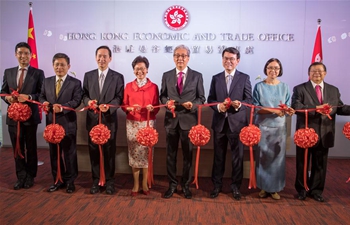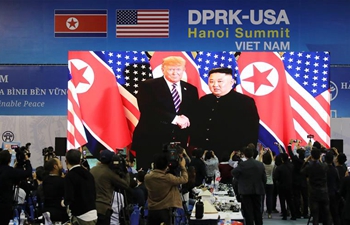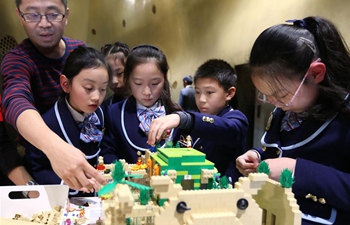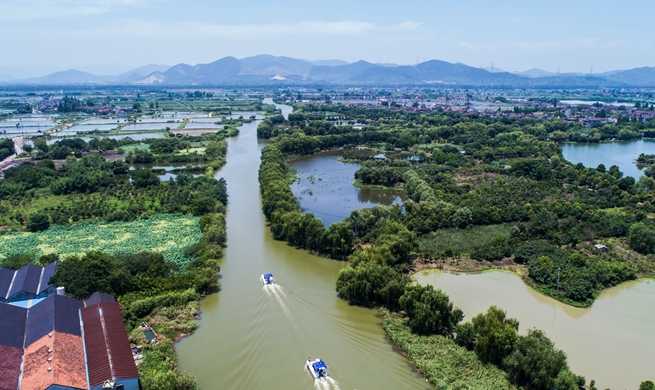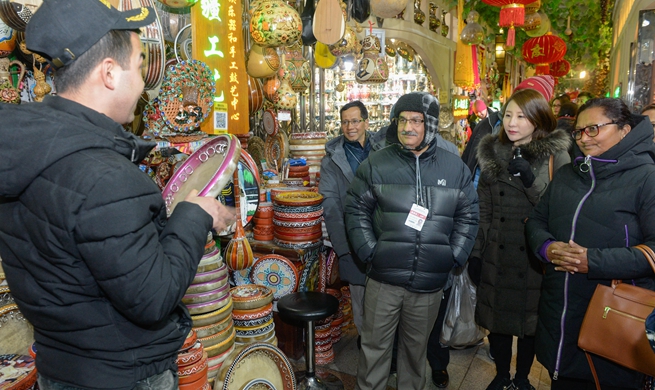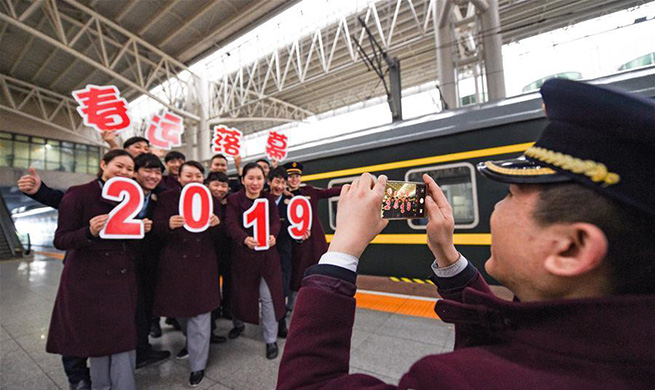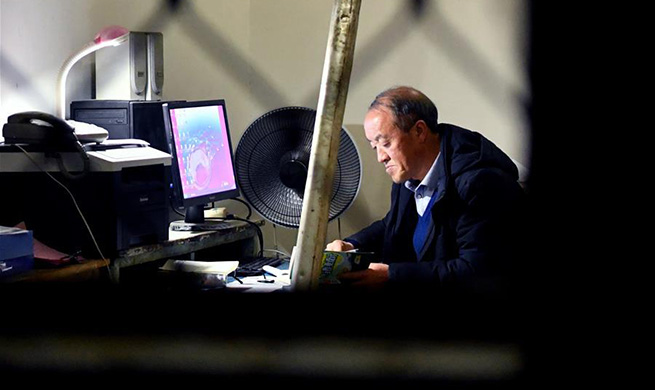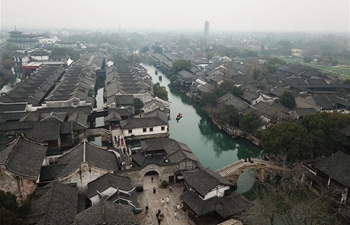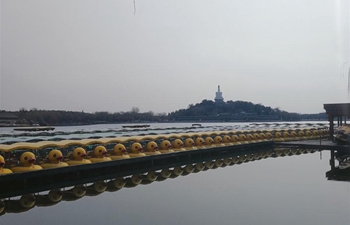TOKYO, March 1 (Xinhua) -- Okinawa Governor Denny Tamaki on Friday urged the central government to immediately halt its plan to relocate a controversial U.S. military base within Japan's southernmost prefecture.
Tamaki met with Japanese Prime Minister Shinzo Abe after a referendum held in Okinawa on Sunday showed more than 70 percent of voters are opposed to the government's plan to relocate the U.S. Marine Corps Air Station Futenma from Ginowan to the coastal region of Henoko, also in Okinawa.
"It is extremely significant that the will of people in Okinawa urging the government to give up the transfer to Henoko was clearly shown for the first time through the referendum," Tamaki told Abe at the beginning of their talks.
He also requested that the Japanese leader immediately call a halt to the construction work currently underway in Henoko involving the reclamation of land from pristine and environmentally-fragile waters.
Abe said he took the outcome of the referendum seriously and wanted to take steps towards lessening the base-hosting burdens of the people of Okinawa.
"While taking the outcome seriously, we would like to produce results step by step to reduce the burden of Okinawa in hosting the bulk of U.S. military bases in Japan," Abe told Tamaki.
Abe, despite the outcome, has said the central government will forge ahead with its plan to relocate the Futenma base, which has triggered a vociferous backlash from the people of Okinawa who have stated they want the Abe-led government to respect their collective stance, as decided by the referendum.
In the referendum, where voters were given the choice to vote "Yes," "No," or "Neither," as to whether they wanted to see the U.S. base relocated on their island, the 72.2 percent of the total said "No."
Tamaki, who denounces the central government's plans to relocate the base, has said he hoped the referendum, although non-legally binding, provided local citizens with the opportunity to voice their opposition to the move to the central government and the United States.
On Friday, the Okinawa governor also visited the U.S. Embassy in Tokyo as an ordinance on the referendum mandated that the results be given not just to Abe, but also to U.S. President Donald Trump.
Tamaki said he was told by Deputy Chief of Mission Joseph Young that the results of the referendum will be reported to U.S. Ambassador William Hagerty and thereafter to Trump.
Okinawa hosts the bulk of U.S. military facilities in Japan, yet accounts for just a small fraction of Japan's total landmass, meaning local residents are intensely affected by military activities and the presence of U.S. base-linked personnel living and working on the island.
Adding to local ire, the new location for the base has a pristine and extremely delicate coastal ecosystem unique to Okinawa, which includes highly-endangered species of marine life likely to be wiped out entirely by the base's construction work.
Okinawans, suffering from crime, pollution and accidents related to the U.S.-bases and personnel on the tiny subtropical island, wish to see the base moved outside of Okinawa and Japan altogether, as anti-U.S. sentiment continues to rise.

